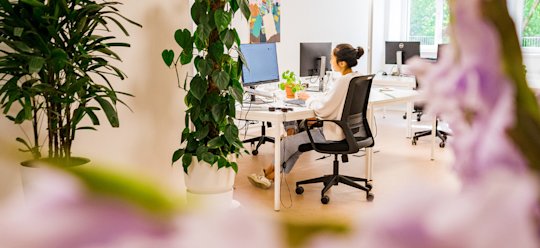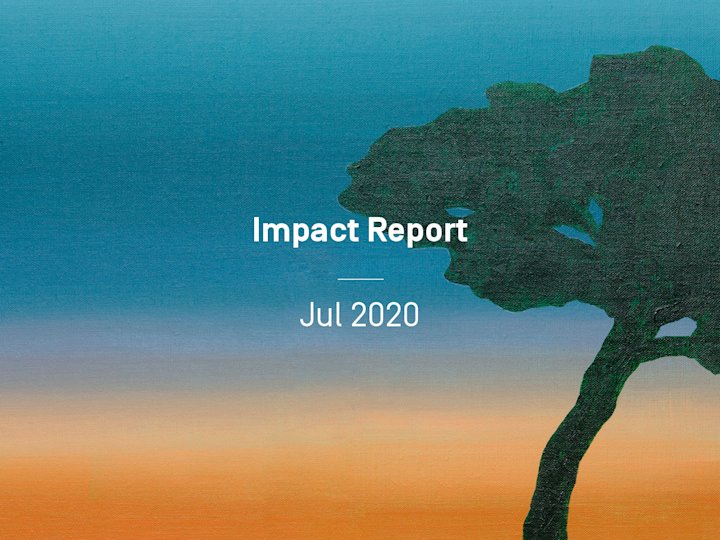We established Tomorrow because we want to play our part in creating a better, more sustainable tomorrow with you. Our Impact Report is a compact monthly update that keeps you up to date on our progress. With the latest figures, insights into how we are committed to the SDGs of the United Nations and the lowdown on additional projects that we want to continue to grow with our positive impact. Let’s get started!
Your money is our capital for change
Your money is our capital. Unlike at many other conventional banks, it is not invested in the arms industry, factory farming or coal-fired power plants. So the more money we take away from these banks, the better. Money, after all, needs to be part of the solution, not the problem.
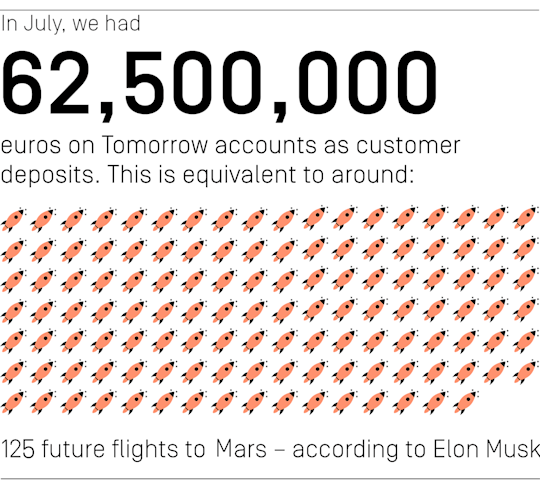
The more money that is paid into our accounts, the more good we can do.
In the month of June
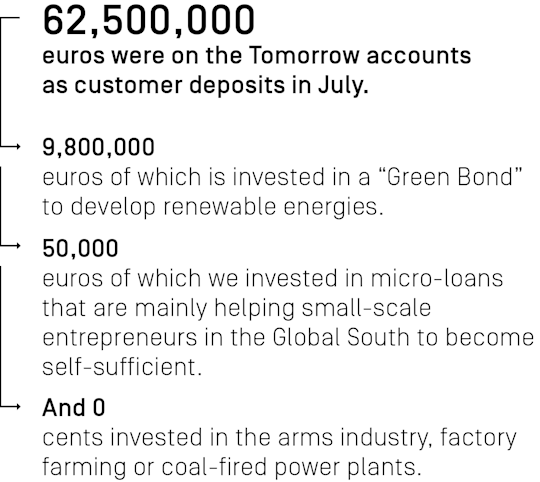
Our joint contribution to protecting the climate
Every time you use your Tomorrow card in a store, a small fee is paid to us by the retailer. But instead of pocketing the money for ourselves like other banks do, we are investing it in a forest protection project in Brazil. The more often you pay using your Tomorrow card, the more square metres of rainforest are protected.
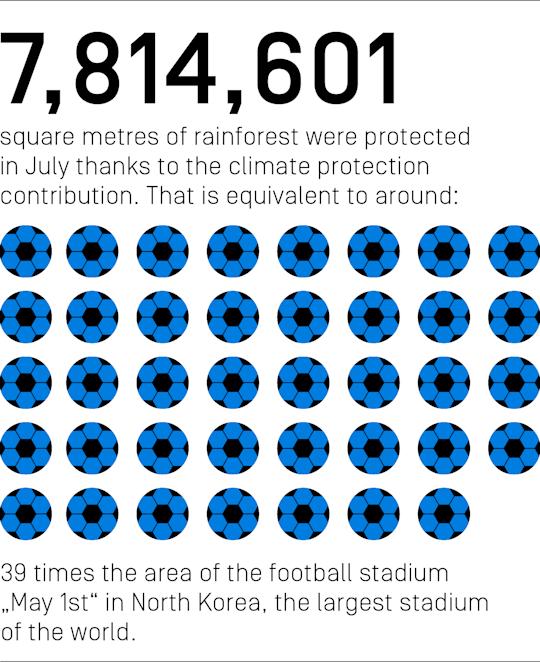
The Amazon is the world’s largest, intact rainforest and the climate protection contribution is helping to preserve it. The money is being donated to a forest protection project in Portel, Brazil and the area we are protecting is growing every month.
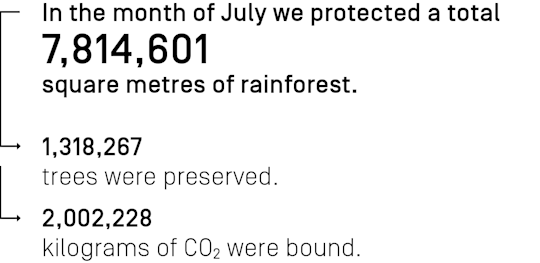
Offset your carbon footprint with Zero
With Zero, our premium account, you can offset as much CO₂ as the average German emits in a year: around 11 tonnes. The more of our users who switch to Zero, the more CO₂ will be offset. Together we can make a significant change.
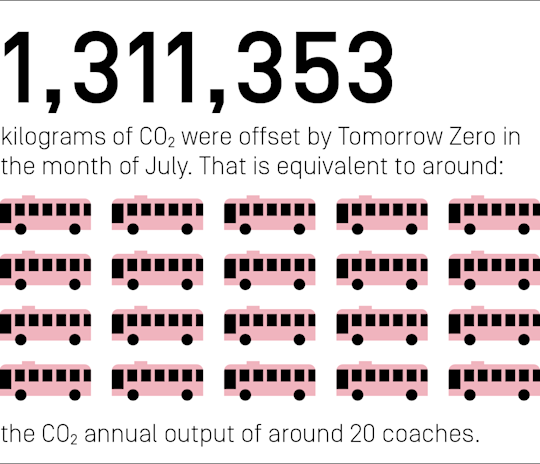
We are currently funding three climate protection projects for the CO₂ compensation. Read more about how that works here.
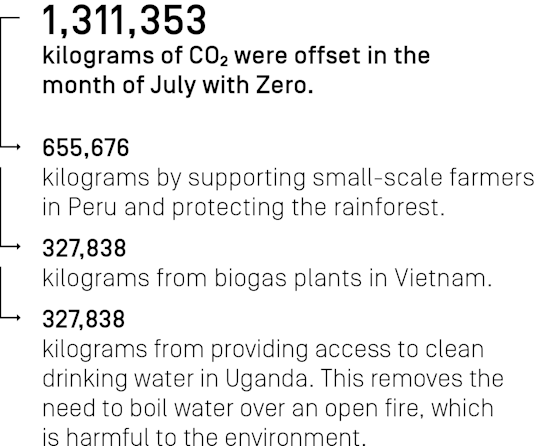
Tomorrow and the Sustainable Development Goals
In 2015 the United Nations defined a set of global goals for sustainable development: the Sustainable Development Goals (SDGs). Tomorrow is committed to these SDGs. In each of our Impact Reports we will pick out one of the goals and explain in more detail how we are contributing to fulfilling it.
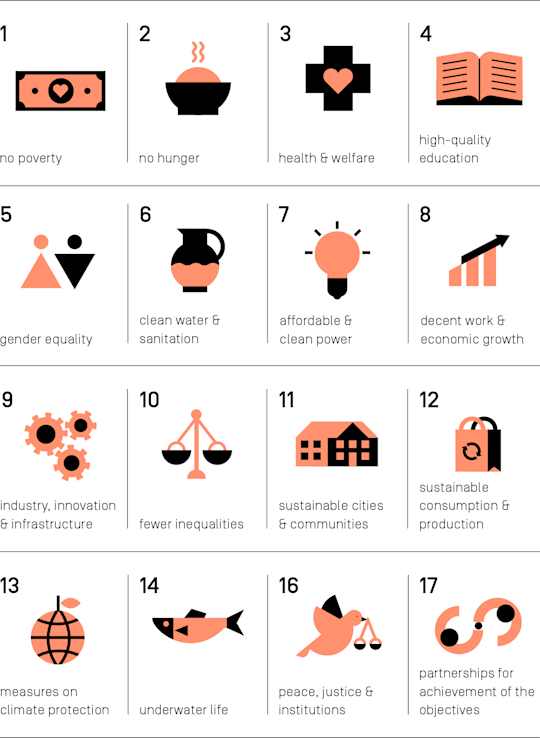
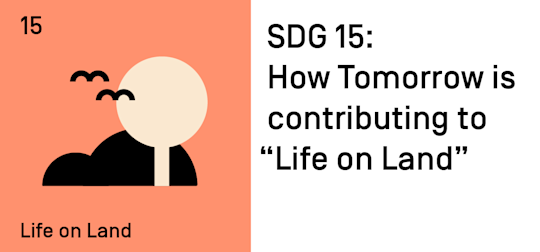
We ensure that our climate protection projects are not only for the good of the climate, but also the people in the Global South. And so with the interchange fee from each of your transactions, we’re not only protecting the rainforest in Brazil, but therefore also the habitat of endangered species, such as capuchin monkeys, oncillas or giant otters, for example. With Zero, we are also contributing to a lower consumption of firewood by reducing deforestation. This improves the soil quality and protects the conservation of biological diversity. In Peru this will protect an area with the greatest biodiversity in the world. But we’re also doing our bit in Germany: for example with the funding being invested in the Green Bond, which, among other things, is being used for the renaturation of the Emscher river in the Ruhr Region. As part of the European Water Framework Directive, this biggest water management project in the EU includes an approx. 100 km² recreation area, new cycling paths and state-of-the-art waste water systems – and it’s all due to be completed by the end of 2020.
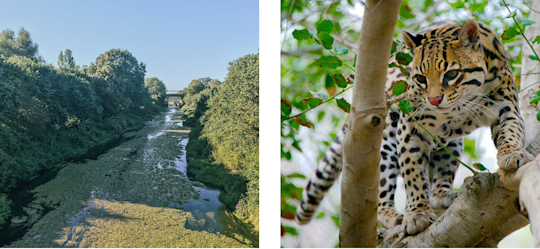
Photos: Privat (l.), ClimatePartner (r.)
What else?
Every month we try to increase our positive impact further with new projects and initiatives – but also by giving talks, participating in demos or simply by taking a stand. Here’s a current overview:
How to be climate-neutral in the workplace
But what about our own climate contribution within the Tomorrow team? Well, as a certified climate-neutral company, we’re doing a pretty good job if we may say so ourselves! But in order to get to that stage, you need to start small. And we did this by opting for green electricity, using as little paper as possible and getting our supplies from local producers, for example. And of course we all have Zero as well. Plus, we only fly as an absolute exception, travel mostly by train for meetings outside of Hamburg and use public transport, or cycle or walk to the office. And if any of our employees don’t own their own bike, they are provided with one from Swapfiets, the bicycle rental service. That’s why, as a team, we have covered such an impressive distance by bike and on foot. A whopping 358,810,80 km in 2019! And whatever we cannot avoid or reduce, we offset – such as the energy it takes to power our server, which of course makes up a major part of our carbon footprint. Zero helps us with this. After all, we all want to take responsibility for reducing our internal CO₂ footprint too.
